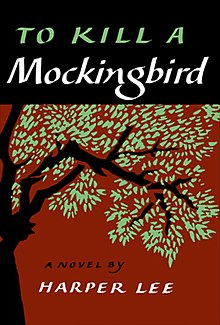Response to “Politics in Children’s Literature: Colliding Forces to Shape Young Minds”
Personal Experience
I have always loved to read. I had really supportive parents, who allowed me access to pretty much any book I could get my hands on, as well as encouraging me to engage with the content of the books, whether it was negative or positive. My mother, grandmother, two aunts, and sister are all teachers; they all understand the importance of literature beyond the scope of test scores. While reading the chapter in Belinda Louie’s book about politics in children’s literature, I was struck by the reality of censorship, and the way it aims to stop critical thinking in children. As an English major, literature for me is about more than just reading text off a page. Authors, as Louie says, write to bring their own perspective into the world, and to not engage with them because they make kids/parents uncomfortable seems more harmful to social development.
Censorship as a Parenting Tool
Mikhail Bakhtin, when describing his idea of the chronotope, argues that any texts with a woman as the main character is inherently political. To many people, this logic works for children’s literature. Any underrepresented character becomes political. According to Louie, if an author rights to express the view point of someone homosexual or a person of color, that is a political choice made by the author. She goes into this in the section about parents, and their reactions to texts without the non-controversial “white male” protagonist.
Some parents want to protect their children from unpleasant realities. Most parents prefer education that favors their particular worldview or that refrains from exposing their children to certain realities of life
page 7

The “certain realities of life” are themes like the racial tension present in To Kill A Mockingbird, which she uses as an example of parents banning successfully from a classroom. Parents not wanting their children to engage in critical thinking about the text, has a ripple affect on all other stakeholders in censorship politics.
Effects of Parental Censorship
According to Louie, the only political stake students have in the politics of children’s literature is their basic enjoyment of the materials. While I don’t think this gives enough credit to students, in her experience that seems to be true. What really runs the political game of the types of things read in school is the parents. Their opinions influence teachers, school administrators, and publishers. There is a culture in schools that pages read is more important that critical thinking and understanding of what was read. The books most commonly censored are the ones that address hard questions, and in turn advance the worldview of the students.

January 23, 2019 at 2:33 pm
Hi, this is a comment.
To get started with moderating, editing, and deleting comments, please visit the Comments screen in the dashboard.
Commenter avatars come from Gravatar.